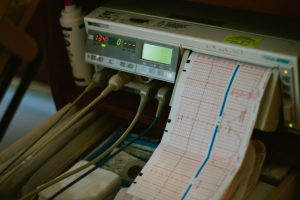Diseases often get misdiagnosed due to similar symptoms. This is especially true for dementia and depression, because the symptoms mimic one another. Pseudodementia is a term used to describe symptoms that resemble dementia, but are due to other conditions, mainly depression. Misdiagnosis of these symptoms, such as memory loss, can lead to someone getting the wrong treatment, or no treatment at all. It is important to know the difference, because the symptoms of depression can be reversed.

The Similarities
Because a lot of people with dementia are also depressed, it can be hard to distinguish between the two. The common symptoms are:
-
- Forgetfulness
-
- Sleeping too much or not enough
-
- Loss of interest of a hobby
-
- Memory problems
-
- Social withdrawal
- Difficulty concentrating
The Differences
Despite their similarities, dementia and depression exhibit important distinctions. Some ways to differentiate the two are:
Memory: One of the main differences in dementia is that memory will continue to get worse. People with depression may have trouble concentrating and be forgetful. Someone with dementia, however, will have problems storing new information, such as what they did a couple of hours ago. They may repeatedly ask the same questions, and forget where they placed things.
Language: People who are dealing with depression may talk slowly, but will speak properly. People with dementia will forget common names of things such as “chair,” or “picture.”
Negativity: Depressed people will appear more negative than people with dementia. Depressed people will talk about suicide more, and put a negative spin on things. People with depression also show less severe mood swings than those with dementia, who may show a wider range of emotions, such as laughing while others are sad, and mood swings that are all over the place.
Orientation: People who are depressed know who they are speaking with, and are aware of the day and time. On the other hand, people with dementia will be confused during conversation, and forget what day and time it is.

Screenings
There are two screenings that can be used to determine depression and/or dementia in seniors. The Geriatric Depression Scale (GSD) is used to evaluate depression. Another option is the Cornell Scale, which can be used to identify depression and dementia.
Treatment
There are multiple treatments available for depression. Typically these can include antidepressants, exercise, and counseling. Unfortunately, there is no cure for dementia. Medications (cholinesterase inhibitors) can help slow down the progression, however.
Depression is common among older adults because of the loneliness or isolation they can feel. More than 8 million senior Americans are depressed. Even more alarmingly, depression can actually bring on dementia. As depression worsens, small strokes break down the brain, eventually developing into dementia. If you experience any type of memory loss, it is in your best interest to see a doctor as soon as possible. Memory and concentration can be restored if the issue is depression. Seeking help and treating depression will not only help you remember and feel better, but it will also decrease your chances of developing dementia.